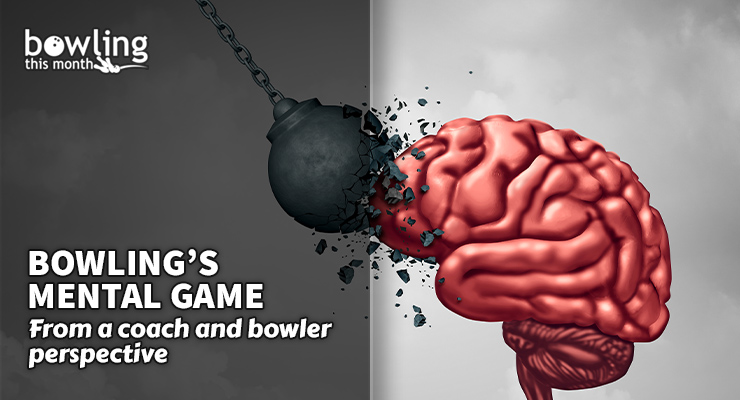Article Contents
- 1. Coaching and the mental game
- 1.1. Giving feedback
- 1.2. Body language
- 1.3. Thinking is inevitable
- 1.4. Channeling passion
- 1.5. Fury into potential
- 2. The athlete perspective
- 2.1. Developing a sport IQ
- 2.2. Pre-shot routine system
- 2.3. The mental game at work
- 2.4. Controlling emotions
- 2.5. The zone
- 3. Final thoughts
Note: This article is only available to Bowling This Month subscribers.
What is sport psychology? In this article, I’d like to discuss bowling’s mental game from several different perspectives. It’s not just about simple tools that a bowler must practice. The key to understanding sport psychology is being aware and always present.
In other words, whatever you say, whatever you do, your body language and verbal/non-verbal communication is all sport psychology. They all affect how you perform, whether you are a coach or a player. Sport psychology is about whether to let things affect you or not. It’s about learning to control your emotions, learning to control your behavior. This starts with understanding both. The goal is to use these to your advantage instead of your disadvantage. As Coach Ernesto Avila said in his recent article, you want to be sure that your greatest enemy is not between your ears.
For the purpose of this article, I’d like to talk about the mental game from the point of view of a coach, because this forms the foundation of how a player learns everything about the game. We’ll also talk about the player’s perspective, including the learning process and the pre-shot routine.
Coaching and the mental game
The more experience you get as a coach, the more you start to pay attention to your own behavior and communication. Or at least you should. There are a few key areas to be careful of: giving feedback, body language, thought process, and recognizing passion.
Giving feedback
As a coach, the thing to pay the most attention to is self-confidence. In all coaching situations, I want to improve the bowler’s self-confidence. You do this by providing:
- the most positive feedback; and
- the least negative feedback.
Over the years, I had to learn to control the negative feedback and learn not to give it if it would do more harm than good. Now, I try ...
Already a premium member? Click here to log in.


